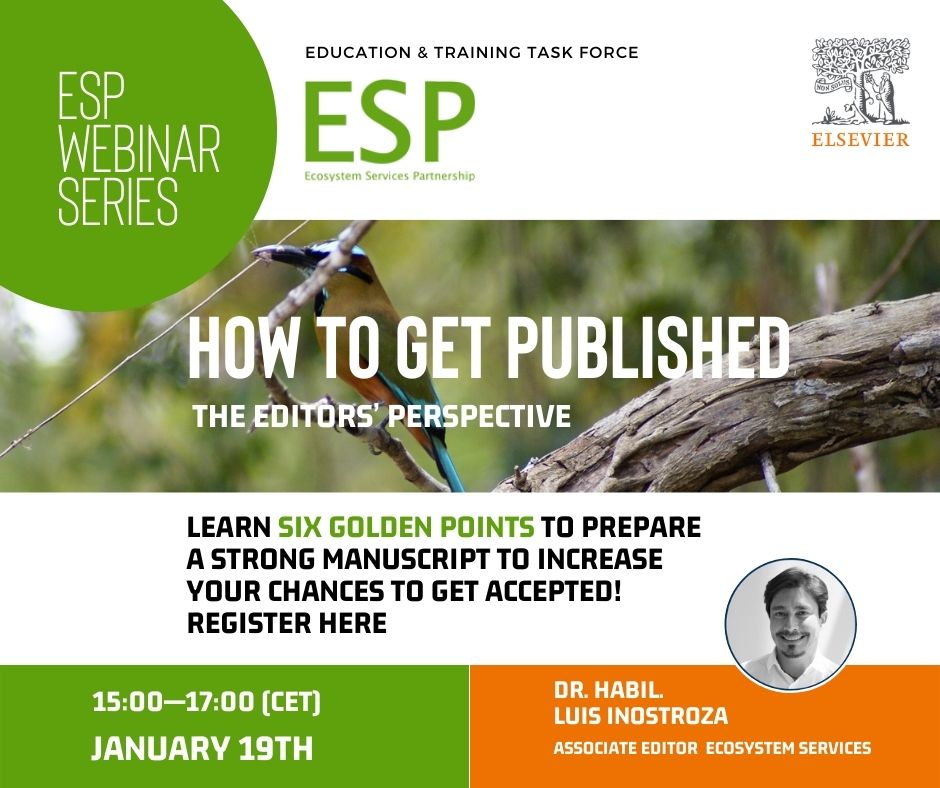We are pleased to announce the first edition of the new ESP Webinar Series – The editor’s guide on successful academic publishing. This first webinar is aimed at young scholars and will discuss key publishing aspects from the editorial point of view, to help a successful publication process. It will take place on 19 January 2022, and will be lead by Luis Inostroza, senior researcher at the Institute of Geography, Ruhr University Bochum, Germany.
Background
How can you increase your chances to get your manuscript published? Writing a scientific article is complex and demanding. It can also be frustrating. Many times it is difficult to find a successful path towards publication. Indeed, the scientific publishing ecosystem is complex and can be overwhelming when you are starting your academic career.
The webinar
The aim of this webinar is to discuss with young scholars about key publishing aspects from the editorial point of view, to help a successful publication process. The workshop will be interactive. Using mentimeter we will induce a structured discussion about the reviewer and the editor points of view. These two different angles may help to better understand and manage a manuscript to pass the screening of experts.
The workshop is designed to be practical, providing guidelines for good practices and effective recommendations, as well as highlighting common errors and misunderstandings on the publishing process to be avoided.
Goals and objectives
- The editorial process: getting along with the gatekeeper
- What’s the role of the editor?
- The editors understanding of a manuscript
- The cover letter, does it matter?
- Avoiding common mistakes
- Academic publishing: Actors and Roles
- Desk Rejection? – most common reasons
- The gold conditions to make an editor happy
- A strong manuscript – 6 golden points
- An easy to handle submission
- Handling revisions: How to revise your paper
Regsiter for the webinar here.

